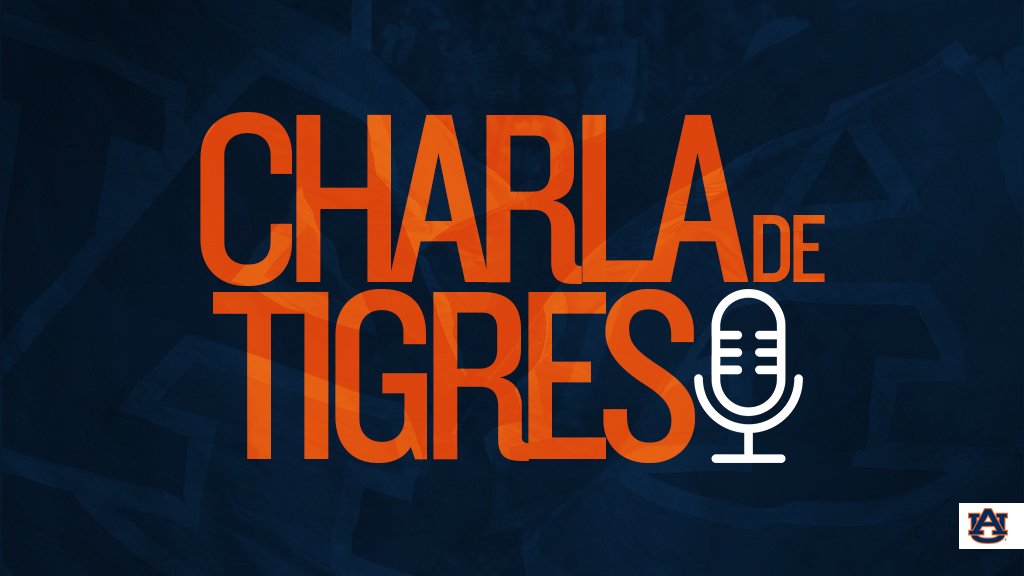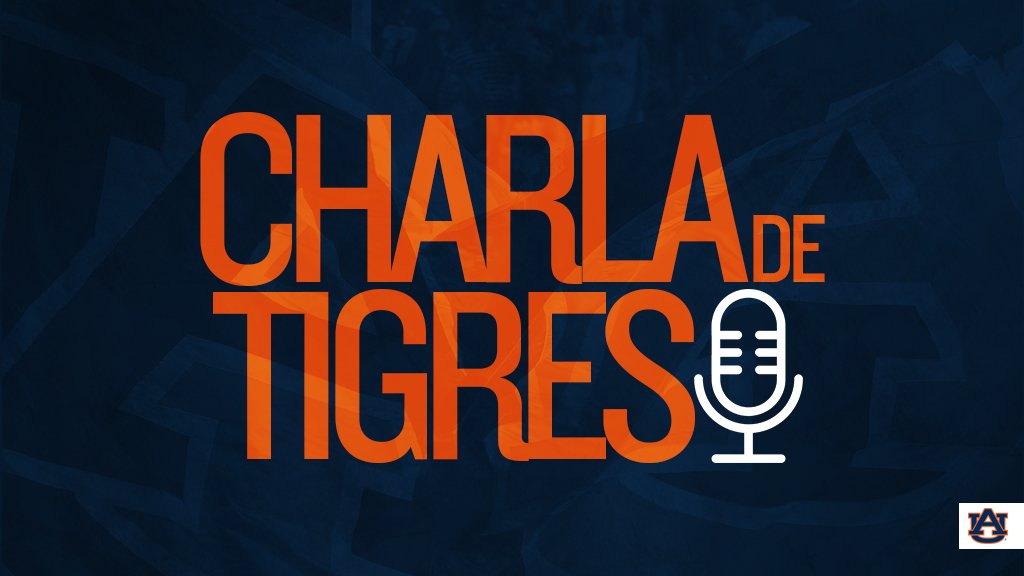
Auburn has launched the Charla de Tigres (Tiger Talk) podcast. (Image via @AuburnTigers)
For most of us, our love of sports began to take shape when we were young children. Whether it was playing a game on the playground or watching a game with a parent, the sports bug gets into the brains of American kids at a pretty young age.
Now, over five million school-aged kids in the United States have a first language other than English. For that demographic, catching the sports bug still occurs. But for the most part, American sports organizations at the collegiate and professional have plenty of work to do in properly reaching this huge potential well of new fans.
“It is very smart that teams are starting to focus some of their digital marketing to non-English speaking markets,” shares Joe Centeno of Team Infographics.
[the_ad id=”14294″]
“The NBA and MLB have done a great job of proving that giving those fans access to your content will help grow the overall popularity of the league, teams, and players. Their fanbase will continue to grow in large numbers because of the efforts in the digital space. As more athletic departments devote resources to non-English media broadcasts, campaigns and now digital content, they will also see an overall increase in support. The reach of new fans is there for the taking for those teams ready to go get them.”
With the MLB specifically, Team Infographics has helped their clients build social content for language specific channels. They have also designed graphics packages for their clients that can be easily repurposed for multiple languages. The Philadelphia Phillies are taking this approach this season with their Spanish language Twitter account.
¡Aquí está la alineación para abrir la serie ante los Orioles! 👇 #LosPhillies
Acompáñanos 🔴⚾ https://t.co/i1iBQvOCWl pic.twitter.com/2d4dAS1jVZ
— Phillies de Filadelfia (@losphillies) May 15, 2018
At the collegiate level, teams like Miami and Texas have been broadcasting games in Spanish for a few years. This provides the university access to new potential fans both in and outside of the United States. But in terms of digital and social content, there’s a bit of a gap. Enter the Auburn Tigers and the Charla de Tigres (Tiger Talk) podcast.
Episode No. 2 of Charla de Tigres features host @openartz and an interview with @AuburnSoftball slugger @JustusPerry18, who learned Spanish from her grandparents.
🎙 » https://t.co/54QyMnu7yD#WarEagle pic.twitter.com/tLdW2cwT1i
— Auburn Tigers (@AuburnTigers) May 1, 2018
Currently two episodes in, the podcast began as a way to way to inform Spanish-speaking Auburn locals about sporting events at the university as well as strengthen those fan relationships. In addition to providing details for fans about past and upcoming Tiger games, the host (of which there will be a few different ones) conducts interviews with Spanish-speaking student-athletes and coaches at Auburn. Assistant Athletic Director for Communications Shelly Poe, who helped to spearhead the project, hopes to see the podcast continue to grow into a valuable tool for Tiger athletics and the university at large.
“We have quite a few student-athletes and staff members from Spanish-speaking countries, so the podcast serves as a way to connect those athletes with their communities back home. That way, people can actually listen in and hear what they’re up to.”
[the_ad id=”14294″]
“Since we’ve launched it, we’ve had great enthusiasm and offers for help from our foreign language department students. They’re also going to try and use it with translation classes and class exercises for people who are trying to learn Spanish this fall. So that’s a whole other application for the show that we didn’t even think of, but is perfect for the university.”
Spanish speakers are not the only group with plenty of potential fans. The PGA Tour, for example, has found a great opportunity to grow their audience with South Koreans and people of Korean descent. Their social team has acted on this by taking advantage of language and geo-targeting tools on Facebook as well as an Instagram account entirely in Korean.
“I think we’re learning a lot about the types of content that resonate with different markets because it’s so different,” Sloane Kelley, Vice President of Content with PGA Tour Digital, explains. “You take a market like South Korea where a lot of our fans really came to golf either because they played or because they were exposed to some of the LPGA stars that are from South Korea. They have a much deeper knowledge of the game of golf than some of our emerging markets who might still be learning the game.”
“The types of content that we’re developing for each of those markets are very, very different. That approach is really meant to serve the fan.”
Want more content like this? Subscribe to our daily newsletter!
In order to best serve the fan, as Kelly mentions, it serves marketers and administrators well to know what best resonates with certain groups of people. With basketball, in particular, a group that has shown to have a strong connection to the sport has been Mandarin Chinese speakers. For that reason, we are seeing more and more colleges begin to provide broadcasts of men’s basketball games with Mandarin commentary. One of the trailblazers of this practice has been the Indiana Hoosiers.
Since 2015, the Hoosiers have utilized Mandarin-speaking students to broadcast all IU home games in the language of the school’s largest group of international students.
“Basketball is the most popular sport in China and broadcasting IU men’s basketball games in Mandarin will bring one of America’s most storied and famous basketball programs to a country of more than 1.3 billion people in their native language,” said IU President Michael A. McRobbie in a 2015 press release. “It also will help cement our relationships with thousands of our Chinese students and alumni, and ensure they remain strongly connected to Indiana University”.
In addition to building those connections with sports fans and the university community, the addition of these broadcasts has provided professional training opportunities for Mandarin-speaking students looking to pursue careers in sports. In the years since this program was implemented, dozens of students have come aboard as broadcasters.
For those students, this non-English content has allowed them an outlet for their lifelong love of sport and now have an opportunity to pass that love on to the next generation of children in America and beyond. For that reason, hopefully, we see better-executed content like all of these examples in the near future.
* Spanish speaking Auburn fans can learn more and connect with the show by emailing charladetigres@auburn.edu.
















